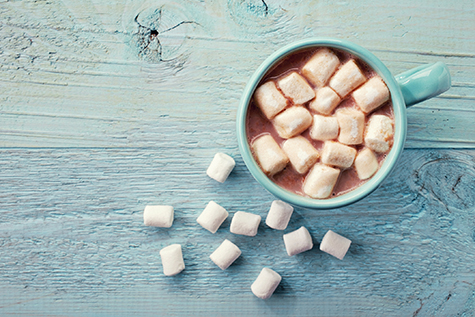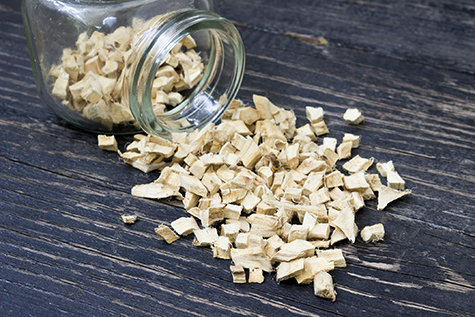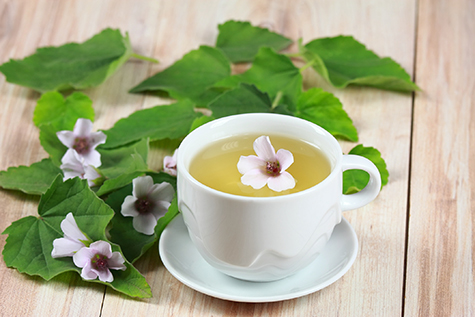Marshmallow: Get to the Root of Its Many Benefits

When you hear the word marshmallow, you may automatically think of a white, fluffy sweet treat commonly put on s’mores. In fact, marshmallow is a perennial herb native to Europe and Asia whose leaves and root have been used in traditional medicine for thousands of years. There is evidence of its use in Egyptian, Arab, Greek and Roman cultures. It’s true, in commercial foods and sweets, marshmallow is used as a flavoring agent for the white, sweet, fluffy treat but there are many medicinal uses for this plant as well.
Medicinally, marshmallow root and leaves are used:
- To treat respiratory tract inflammation and irritation
- To sooth a dry cough
- To calm inflammation of the stomach and intestines including healing ulcers
- To treat diarrhea and constipation
- To calm urinary tract inflammation
- Topically for abscesses and as a poultice for skin inflammation, burns, and other wounds.
Marshmallow may work as an anti-inflammatory that lowers blood sugar and thins the blood slightly supporting the cardiovascular system and decreasing diabetes risk. Marshmallow is a very calming herb. Many people use it topically to sooth the skin but also orally, often in tea, to calm and coat the digestive tract. It appears to be especially useful for soothing the delicate tissue of the stomach, intestines and bladder. The reason it works so well for these purposes is because it is considered a “mucilage” or a carbohydrate substance that yields a viscous or gelatinous solution, often derived from plant roots such as this one. This is how marshmallow sooths and moistens mucus membranes in all parts of the body.
Marshmallow is on the generally recognized as safe list (GRAS) when eaten in normal amounts in food. Feel free to use it freely in recipes and drink it in tea for a soothing hot beverage. There is limited research currently on marshmallow for modern medicinal use, but despite that, it is commonly taken as an herbal supplement to treat coughs and as a compress to support breastfeeding mothers. Marshmallow is generally well-tolerated and doesn’t carry some of the adverse effect warnings or drug/nutrient interactions that many other herbs do. For example, doses of marshmallow in animal studies up to 3000 mg/kg have not shown any lethal effects. For comparison, a human dose would be about 40mg. There is potential for interaction between marshmallow supplements and drugs that thin the blood or lower blood sugars including many anti-diabetes medications so always chat with your doctor before adding in a supplemental herb like this one. Generally, it appears marshmallow is safe and possibly effective for some conditions.
Have you tried marshmallow as medicine? Let us know in the comments!
Resources
Mountain Root Herbs. Marshmallow Root. https://www.mountainroseherbs.com/products/marshmallow-root/profile. Accessed 9/15/18.
Natural Medicines Database. https://naturalmedicines.therapeuticresearch.com/databases/food,-herbs-supplements/professional.aspx?productid=774. Updated 8/16/2018. Accessed 9/15/18.


